Utah has the third-largest percentage of public versus private land of all the U.S. states, trailing only Alaska and Nevada. In addition, much of this public land is actively used for recreation. All of this public land helps to make Utah a beautiful and exciting place to visit, but it has also attracted certain kinds of illegal activity. This state is not only a magnet for huge numbers of tourists each year, but also a magnet for illegal marijuana growers.
According to a press release from the office of U.S. Sen. Orrin Hatch (R-UT), federal drug enforcement agents have seized hundreds of thousands of illegally grown marijuana plants on Utah public land in recent years, particularly in southern Utah. Hatch is co-sponsoring a bill that would increase the penalties for cultivating marijuana on public land and would also provide funds to help address the environmental impact of illegal marijuana grows.
Environmental Damage, Public Safety Are Major Concerns
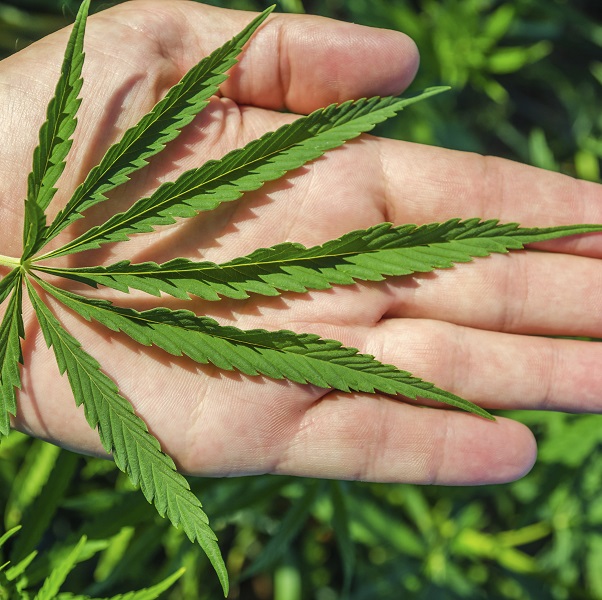 Large-scale marijuana grows use and pollute valuable water resources in addition to leading to the clear-cutting of trees. Pesticides used to protect marijuana plants can harm an area’s natural ecology, and clear-cutting can cause erosion and even landslides.
Large-scale marijuana grows use and pollute valuable water resources in addition to leading to the clear-cutting of trees. Pesticides used to protect marijuana plants can harm an area’s natural ecology, and clear-cutting can cause erosion and even landslides.
Frequently, growers with ties to international drug traffickers will take advantage of remote wilderness areas that have been set aside for public preservation. Public lands offer remoteness and minimal law enforcement presence, making it possible for growers to cultivate marijuana on a scale that would be difficult to achieve on private lands.
Many people have public safety concerns in addition to environmental concerns when it comes to illegal marijuana cultivation. While reports of encounters between members of the public and marijuana growers are rare, they do happen, as in 2010 when two hikers were held at gunpoint before being rescued.
Impact Of Marijuana Legalization
Recent developments in and around Utah have some people concerned that the amount of Utah land being used to grow marijuana could increase despite legislative efforts. The neighboring state of Colorado legalized recreational marijuana in 2014, but it is unclear whether this has helped to increase or decrease the amount of illegally grown marijuana that is sold in the state.
Utah itself was recently considering a bill that would legalize edible medical marijuana for patients with certain illnesses. A Drug Enforcement Agency (DEA) official made headlines in March 2015 with his testimony before a Utah Senate panel. The agent warned that marijuana grow sites would increase if medical marijuana were legalized, and that the environmental consequences would include, among other things, stoned rabbits and other wildlife. Ultimately, the bill failed to pass the Senate by one vote and its sponsor has vowed to reintroduce the legislation.
Convictions For Marijuana Possession On Public Lands
In Utah, public land and marijuana also intersect in a different way. The state leads the nation in the number of people convicted for cannabis possession on public lands; in fact, it is responsible for about one-third of all such convictions nationwide.
Cannabis users are attracted to public lands in Utah for the same reason that marijuana growers use the land. There is very little law enforcement presence in remote areas of wilderness, so people believe that they are unlikely to get caught.
Find Out The Top 3 Reasons Marijuana Should Be Banned
15 Jun 2015
Summer Drinking Dangers
Summer is a time when many of us want to celebrate. Winter is over with. With more daylight hours of bright sun, the beach beckons. There are graduation parties, Fourth of July barbecues, and any-reason-at-all parties to attend. It’s a great time to get together with friends, enjoy the long days and have a good time. Unfortunately, a lot of these celebrations involve alcohol and all the dangers associated with it. Stay safe this summer and consider partying alcohol-free. If you are going to indulge, do so responsibly and safely.
Drinking Dangers During The Summer
Alcohol And The Heat
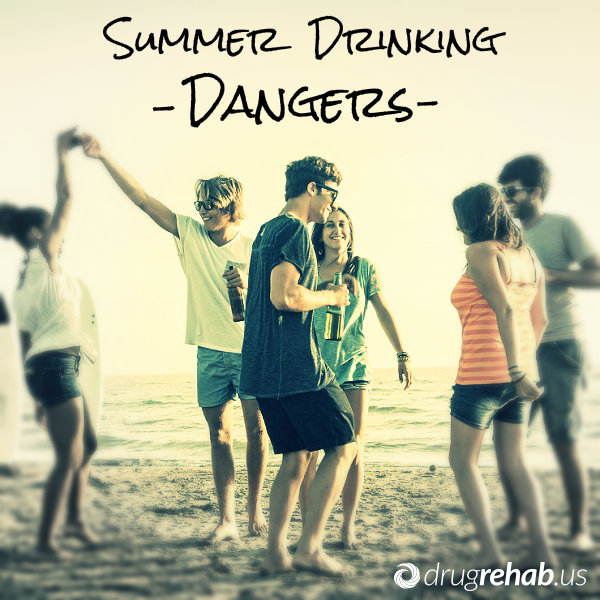 Many of the best summer parties are outdoor barbecues and picnics. It’s natural to want to drink at these events. You’re warm and relaxed and enjoying the company of your friends or family. Being outside while temperatures are high and the sun is shining can be a health hazard even without alcohol.Without proper precautions you may suffer from heat stroke, sunburn or dehydration. Alcohol can worsen these conditions and speed their onset.
Many of the best summer parties are outdoor barbecues and picnics. It’s natural to want to drink at these events. You’re warm and relaxed and enjoying the company of your friends or family. Being outside while temperatures are high and the sun is shining can be a health hazard even without alcohol.Without proper precautions you may suffer from heat stroke, sunburn or dehydration. Alcohol can worsen these conditions and speed their onset.
If you are planning to drink outside, do so in moderation and don’t forget to drink plenty of water as well. Use sunscreen and spend time in the shade to avoid too much sun exposure, avoid caffeinated drinks and stay cool with ice water.
Alcohol And The Water
What would a summer party be without a pool, lake or ocean-side beach? If you’re drinking near or on the water, the risk of harm is great. In fact, one out of every two deaths that occurs during water recreation is related to alcohol. While many people take drinking and driving very seriously, not everyone considers drinking and boating to be an issue. An intoxicated boat operator can cause terrible damage from accidents. Passengers drinking on boats may lose balance and fall overboard.
There are also the same hazards that involve drinking and being exposed to heat and the sun. On a boat it may not be possible to get drinkable water to stay hydrated, or to find relief from heat and sun. If you’ll be out on a boat, it’s best to refrain from drinking at all. If there will be drinking, bring along plenty of water, sunscreen and light clothing. Never let the operator of a boat drink.
Parties And Binge Drinking
Most people have lots of parties to attend over the summer, which gives ample opportunities to drink too much. When you’re having fun at a party it can be easy to forget how much you have had. Women should not have more than four drinks at once, or men more than five. Drinking more is considered binge drinking and is particularly dangerous. Binging can lead to car accidents, assaults and fights, unplanned pregnancies, increased blood pressure, heart disease and other serious problems.
Binge drinking can turn a fun party into a nightmare. Always keep track of what you are drinking at parties and set a limit. Drink one non-alcoholic beverage in between every alcoholic drink to keep yourself from getting out of control. It also helps to have a friend or partner monitor your intake and warn you if you are close to drinking too much.
Summer is a season full of sun and fun, and plenty of parties. Make the most of your summer vacation without an alcohol-related tragedy. Be careful, be aware of how much you and others drink and stay hydrated so that you can expect to enjoy your summer safely.
Read Our Other Posts With Helpful Tips & Tricks
08 Jun 2015
The Top Three Reasons Marijuana Should Be Banned
Recreational marijuana is a buzzword these days, and for good reason. As voters are given the choice, many are opting to make this drug legal for adults to use however they see fit. The tide of public opinion may be shifting and the benefits of legalization of marijuana for recreational use highly touted, but marijuana remains a federally illegal, mind-altering substance.
Top Three Reasons Marijuana Should Be Banned
Before you make up your own mind in the pros and cons of legalization of marijuana debate, make sure you are familiar with the major reasons why this drug needs to remain illegal.
1. Marijuana Is Addictive
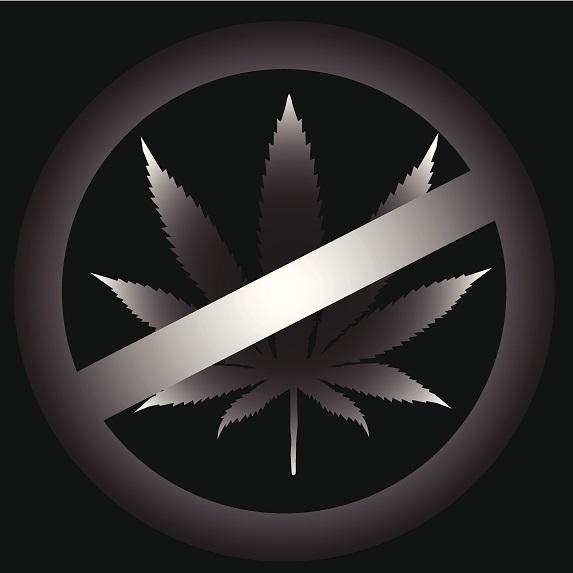 One of the biggest misconceptions about cannabis, or marijuana, is that you can’t get addicted to it. This stems from the fact that it is much less addictive than substances like heroin, meth or crack. This does not mean, however, that you cannot develop a habit when smoking pot. Thousands of people every year seek treatment for marijuana addiction, and it is a real and serious problem.
One of the biggest misconceptions about cannabis, or marijuana, is that you can’t get addicted to it. This stems from the fact that it is much less addictive than substances like heroin, meth or crack. This does not mean, however, that you cannot develop a habit when smoking pot. Thousands of people every year seek treatment for marijuana addiction, and it is a real and serious problem.
It’s easy to be misled by the lax attitude toward marijuana. A lot of people use it recreationally and are able to keep it that way. Maybe you smoke at a party one time and then get some to use at home by yourself. You find that it’s nice to use when you want to relax or party with a few friends. But before you know it, that partying becomes addiction and you can’t relax without your drug of choice.
2. Young People Are Harmed By Marijuana
But, you say, marijuana is being made legal for adults only, not for teens. Of course, there’s no such thing as underage drinking, right? Alcohol is supposed to be for adults only, but around 10 percent of drinking in this country is done by people under the age of 21. Based on alcohol’s example, we can expect that the same will happen with legal pot. Marijuana is particularly bad for young people with brains that are still in development. Studies have shown that teens who smoke pot regularly have lower IQs than their peers. They perform worse academically, miss more days of school and are less likely to participate in extracurricular activities.
3. Marijuana Causes Accidents
Another lesson that alcohol teaches us is that although driving under the influence is outlawed, too many people do it. The result is that thousands of people are injured or killed every year by drunk drivers. With legal marijuana we will be adding thousands of more to that list every year. Intoxicated driving is the same no matter what the substance is. A high driver is like a drunk driver and liable to cause accidents.
The debate about making this drug legal will continue and more states are likely to vote for it, but the cons for recreational marijuana are just too many and too great. There is no need for legal drugs when the safety and well-being of all Americans is at stake.
Get Help Now – Learn More About Marijuana Addiction Treatment
A new trend has emerged in the voting booth: people are saying yes to legal, recreational marijuana. Are there really any benefits of making this drug legal to adults? What will the consequences be, good or bad? It’s too early to tell, but in time we will see if there really are any pros of legalizing recreational marijuana or if it has all been a big mistake and a failed experiment.
Marijuana Is Just For Adults, Right?
Among the many concerns that critics of legalized recreational marijuana have, perhaps the most important is the safety and the health of children and teens.
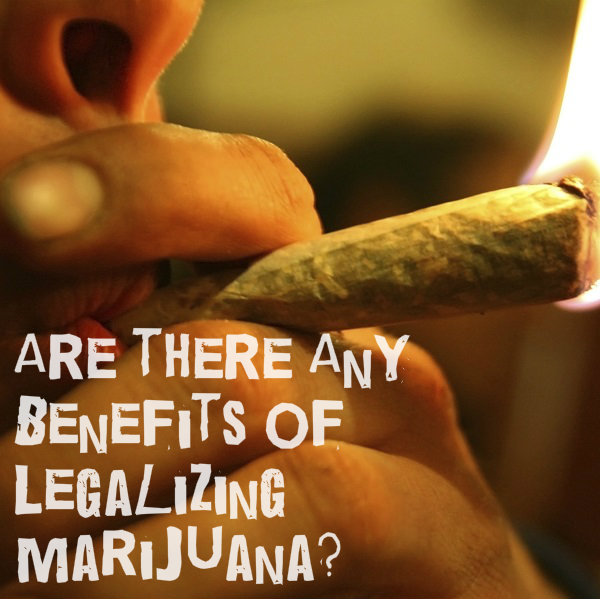 Proponents argue that there are age limits and that kids can’t get access to marijuana, but the same could be said of alcohol. And yet, underage drinking is more than common. In fact, alcohol is the number one substance of abuse among teens. Why? They can access alcohol more easily than drugs because alcohol is legal for adults. To think that kids won’t get their hands on pot is naïve.
Proponents argue that there are age limits and that kids can’t get access to marijuana, but the same could be said of alcohol. And yet, underage drinking is more than common. In fact, alcohol is the number one substance of abuse among teens. Why? They can access alcohol more easily than drugs because alcohol is legal for adults. To think that kids won’t get their hands on pot is naïve.
The safety of teens and kids is important because it will be compromised and is a major one of the many cons for recreational marijuana. Young people have vulnerable, developing brains, and marijuana is a mind-altering drug.
When teens smoke pot they throw a wrench in the works of that development. It has even been shown that smoking pot regularly can lower IQ and reduce academic achievement. Another important point is that most people who get addicted to marijuana started smoking when they were teens.
Public Safety Concerns Everyone
Another major point of contention in the discussion of the pros and cons of legalization of marijuana is the possibility of more accidents. Supporters of legal marijuana say that it isn’t as bad as alcohol when it comes to driving, but it is bad. You can’t drive high and expect to never have an accident. With more pot smokers on the road, more of us are likely to fall victim to a devastating traffic accident. States with legal marijuana have yet to determine how to set and accurately measure an intoxication level.
Are There Any Pros Of Legalizing Marijuana?
When you ask proponents of legal marijuana why they support it, you will mostly get half-hearted answers. Most supporters simply think there is no reason not to make it legal, if alcohol is legal. Others just want to be able to smoke legally and support recreational marijuana for personal and selfish reasons.
Perhaps the one pro that makes the most sense in the argument for legal recreational marijuana is for state revenue. Many states are operating in budget deficits and could use a new source of revenue to shore up their coffers. Whether or not marijuana is the answer to this particular problem remains to be seen. What we know for sure is that it is a big risk for some extra money.
Find Out Now How Changing Marijuana Laws May Impact Children
18 May 2015
The Growing Popularity Of Legal Marijuana
With Washington D.C. voting to legalize recreational marijuana, it feels like a tide is turning in the U.S. Now that our nation’s capital wants recreational pot, how long will it be before all states make a similar vote?
The federal government still maintains that the drug is illegal, but the cons of recreational marijuana legalization fall on many deaf ears as voters take to the ballot.
Voters in Washington, Colorado, Oregon and Alaska have all spoken and decided that pot should be legal for adults to use recreationally.
Why So Many People Believe In Legal Marijuana
 There were already several states allowing for legal medical marijuana when a handful of states decided to take it to the next level. To allow adults to use this mind-altering drug for no other reason than recreation is a concept that has been gaining ground in recent years. While many are debating the advantages and disadvantages of legalizing marijuana, millions of people have already made up their minds.
There were already several states allowing for legal medical marijuana when a handful of states decided to take it to the next level. To allow adults to use this mind-altering drug for no other reason than recreation is a concept that has been gaining ground in recent years. While many are debating the advantages and disadvantages of legalizing marijuana, millions of people have already made up their minds.
Some of the biggest reasons supporters of legal pot give for their position don’t hold much water. For instance, many proponents of legal marijuana simply state that if alcohol is legal, pot should be too.
These supporters claim that marijuana is not as bad for you as drinking and that it doesn’t impair people to the same extent that alcohol does. To use this reasoning is to ignore all the harm and damage that alcohol causes every year, from the thousands of car accidents to the millions spent on health care. The next most popular argument is to claim that cash-stretched states will get a new source of revenue. Whether this proves to be true or worth the risks remains to be seen.
The Overwhelming Negatives To Recreational Drugs
While it is possible to make a case for some benefits of legalizing pot, the negatives far outweigh them. Recreational drugs are never safe, even when the perception is that marijuana is harmless compared to other drugs.
Marijuana causes harmful side effects, long-term health problems, addiction, accidents and even damage to the developing brains of teens and young adults. Yes, legal marijuana is supposed to be restricted to adults, but so is alcohol. And yet, alcohol is the number one substance abused by teens. To think that teens won’t get increased access to pot when it is legal for adults is to be naïve. Research has shown that marijuana use in teens impairs memory, thinking skills and even lowers IQ.
Voters may continue to debate and discuss the pros and cons of legalizing marijuana, but anyone who sees the facts will quickly realize that legal pot is a bad idea. Public health will suffer if more people are getting high and trying to function. We will surely see more accidents, and most troubling of all, teens will suffer.
How Many People Use Medical Marijuana? – Find Out Now!
The Washington D.C. City Council earlier this year elected to cancel a special public hearing where marijuana legalization in the district was to be discussed. In doing so, it was heeding the advice of Dist. Atty. Karl A. Racine, who told council members they would be violating the law by publicly discussing a topic that had been ruled off-limits by Congress.
Marijuana legalization is now a huge issue in the nation’s capital, after the district’s citizens voted to lift some of the sanctions against the drug in last November’s election. D.C. voters overwhelmingly approved a ballot referendum called Initiative 71, which would decriminalize the possession of up to two ounces of marijuana. If allowed to go into effect, it would also allow D.C. residents to grow up to six marijuana plants at home for personal use.
Marijuana Legalization And Regulation Act Of 2015 Bill Shut Down From Public Exposure
For the dictates of Initiative 71 to become reality, the City Council would need to create a system to supervise, regulate and license all activities related to the cultivation, manufacture and legal sale of marijuana products within the Washington, D.C. area. And recently four council members introduced a bill called the Marijuana Legalization and Regulation Act of 2015, which would have set up a framework to do just that.
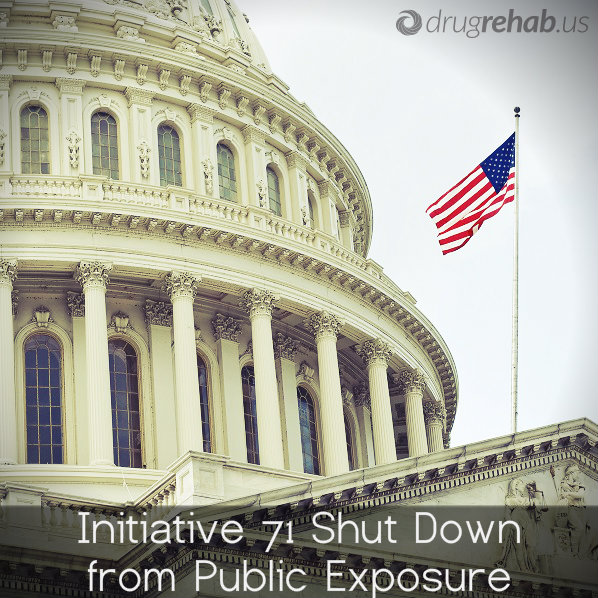 This was to be the subject of a hearing in February. But the council decided to take its discussion behind closed doors, where public exposure would be kept to a minimum.
This was to be the subject of a hearing in February. But the council decided to take its discussion behind closed doors, where public exposure would be kept to a minimum.
While states have the right to pass laws without federal government interference, elected officials in the District of Columbia must submit all such legislation to Congress for final approval. With both the House and Senate under the control of Republicans, who almost universally oppose drug legalization, it has been assumed from the beginning that D.C.’s attempt to change its marijuana laws would be vetoed—and that’s exactly what happened. When Congress passed its annual budget in December, a clause was included that prohibited taxpayer funds—either federal or local—from being used to implement any changes in drug laws.
The D.C. council members were fully aware of these restrictions when they planned this hearing and when their bill to create a manufacture-and-distribution network was first introduced. But they wanted to have a sensible and comprehensive action plan in place in the event that a new Congress with a more progressive attitude were to come into power.
But according to Racine, even discussing the issue could be interpreted as defying the will of the nation’s most powerful legislative body. He told the D.C. council members that their planned public discussion might violate another congressional edict called the Anti-Deficiency Act, which forbids lawmakers and bureaucrats in the district from spending tax funds on actions banned by the federal government. Sharing information and opinions in private meetings would be protected by the First Amendment, Racine declared, but pushing the legalization of marijuana even one step closer to reality would put council members squarely in the line of fire. Racine claimed they might be subject to fines or jail sentences if they went ahead with their original plan.
Racine’s opinion was not shared by D.C. council staff attorney V. David Zvenyach. He saw nothing in existing law that would prevent council members from planning for future contingencies. Given this backdrop, it is not surprising that several members of the council strongly disagreed with the decision to cancel the public hearing. Chalking the whole brouhaha up to unwanted congressional meddling, the members of this group were outraged by what they saw as intolerable interference in the affairs of an independent city.
Initiative 71 And The War On Drugs
Initiative 71 seems doomed to irrelevancy as long as Republicans maintain control of Congress—or as long as the Republican consensus remains hostile to any loosening of existing drug laws.
It is noteworthy, however, that Obama administration drug czar Michael Botticelli recently stated his opinion that Initiative 71 should be allowed to go into effect. This represents a change from the past, when Democrats and Republicans were united in their determination to continue the war on drugs without compromise. Winds of change are in the air, and while the immediate future of Initiative 71 doesn’t seem particularly bright, it is likely only a matter of time before the will of the people carries the day.
Find Out Why No States Should Be Legalizing Recreational Marijuana
Any drug court that hopes to obtain federal funding will have to allow addicts access to drug replacement therapies for heroin and prescription opioid addiction, the U.S. government has ruled.
Treatment programs that practice abstinence-only therapies will still remain perfectly acceptable in most cases, but when doctors recommend drug maintenance as the best alternative for individual defendants, drug court judges will have to respect that opinion.
Changes In Addiction Rehab Policy
These changes in existing policy were announced in February by Michael Botticelli, director of the White House Office of National Drug Control Policy. Previously it had been left to the discretion of drug court judges to decide which types of rehabilitation and treatment were appropriate, and these institutions have a long history of rejecting drug replacement strategies. In Kentucky, there are signs posted outside drug courts instructing defendants in methadone or Suboxone maintenance programs to wean themselves off of these drugs before their court dates if they want to avoid being sent to prison.
Maintenance Programs More Effective Than Conventional Abstinence-Based Programs?
But the latest evidence strongly suggests drug maintenance programs, particularly those that rely on Suboxone as a replacement drug, are extremely useful and do an excellent job of helping opioid addicts stay away from the substances that endanger their lives. Abstinence-based treatments in general are more effective against alcoholism than against heroin and OxyContin addiction, which cause changes in the brain that can be incredibly difficult to overcome when relying on willpower alone.
 Studies show more than 90 percent of heroin and opioid painkiller addicts will relapse back into drug use within a year of conventional rehabilitation, with the majority dropping out of treatment programs before reaching the end. In some cases, this may show a lack of commitment, but it is still data that treatment centers cannot afford to ignore.
Studies show more than 90 percent of heroin and opioid painkiller addicts will relapse back into drug use within a year of conventional rehabilitation, with the majority dropping out of treatment programs before reaching the end. In some cases, this may show a lack of commitment, but it is still data that treatment centers cannot afford to ignore.
Even outside structured treatment programs, Suboxone is extremely popular with opioid addicts, so much so that a thriving underground market for the drug exists among those looking to self-medicate themselves out of their drug habits. But only 2.5 percent of physicians across the United States have gone through the certification process necessary to prescribe this maintenance medication, helping to repress the availability of the drug.
Most physicians and treatment experts don’t recommend Suboxone or methadone maintenance therapy for opioid addicts, preferring to stick with what they see as the tried-and-true methods of abstinence and the drug-free lifestyle. Substitution drugs go against the grain, maintaining a state of addiction despite their abilities to decrease cravings and reduce the opioid high.
But plenty of studies have verified the relative safety of drug maintenance therapy. At the present time, prescription opioid painkillers plus heroin overdose take the lives of about 25,000 Americans each and every year, and the number of victims has increased exponentially over the last 10 to 15 years. Relapse following unsuccessful treatment is a common killer in these cases, because opioid addicts who go back to using after a period of abstinence have reduced tolerance for drugs and can overdose easily if they take the same dosages they did in the past.
Benefits Of Drug Maintenance Therapies
The reliance of drug courts on abstinence-based rehabilitation is understandable, given the fact that drug maintenance therapy does replace one type of opioid addiction with another. But having one addiction kill the other can play a constructive healing role for desperate individuals who lack the capacity to beat their drug dependencies without extra help.
Willpower is an important part of any addiction recovery regime, and all addicts who plan to get better must make a determined effort to overcome the brain disease that plagues them. Opioid addicts undergo significant neurological changes that won’t go away overnight, however, and that is why drug maintenance can help bridge the gap between dependency and recovery.
Ideally, addicts who use methadone or Suboxone will eventually be able to wean themselves off of these substances under medical supervision. But until they do, these drugs can keep them alive, still in a position to win a battle against addiction that can so easily end in tragedy if intervention is unsuccessful.
Drug courts can provide a route to recovery for addicts only if they remain open to all possibilities, including those that may seem a bit outside the box. The new federal government policy may force their hand to a certain extent, but is will also help raise the consciousness of drug court judges who have a responsibility to keep up with the times.
Read Our Latest News Blogs
Since video gambling in Illinois became legal, the state’s neighborhoods, retail districts and shopping malls have been invaded by a new type of gambling establishment—the video gambling café. Unlike bars and restaurants that provide a few video slot machines for their customers’ convenience or to supplement the main business, video gambling cafés are a stripped down no-frills version of the casino that exist solely to make money off of people’s passion for electronic games of chance.
When politicians in Illinois got the idea to legalize video gambling machines, their primary purpose was to give a boost to neighborhood taverns and local restaurants struggling under the weight of the economic downturn. Of course they were also looking for new revenue streams, and they knew expanded gambling would swell the state’s tax coffers more prodigiously than spring melting floods the Mississippi River.
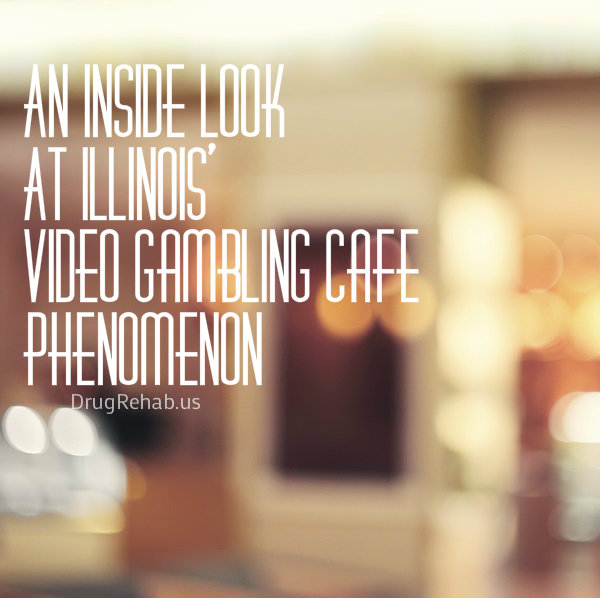 Illinois’ Video Gaming Act of 2009 authorized the placement of up to five video slot machines or gaming terminals in truck stops, veteran facilities, fraternal establishments and retail outlets licensed to serve alcoholic beverages for immediate consumption. It took a while for the new law to be put into application (three years, to be precise), but when video gambling finally came online, a new type of gambling operation barged onto the scene and threw its chips into the pot.
Illinois’ Video Gaming Act of 2009 authorized the placement of up to five video slot machines or gaming terminals in truck stops, veteran facilities, fraternal establishments and retail outlets licensed to serve alcoholic beverages for immediate consumption. It took a while for the new law to be put into application (three years, to be precise), but when video gambling finally came online, a new type of gambling operation barged onto the scene and threw its chips into the pot.
Originating from mysterious locations far outside the Illinois border, these gambling entrepreneurs applied for liquor licenses in Illinois municipalities eager for business expansion. After their requests were granted—as they almost always were—the video gambling café phenomenon truly took off.
Video Gambling Cafés Surging
The numbers are changing every day, but according to one recent report, there are more than 1,250 video gaming machines ensconced in 280 cafés across the Prairie State. And that estimate doesn’t include the applications for café licenses that are pending in the 40-plus Illinois counties that have granted café operators permission to set up shop.
To meet the requirements of the law, video cafés must serve food. But their offerings are sparse in comparison to bars (with strict drink limitations often enforced), and the vast majority of their income is gained from the operation of their video slot machines.
Video Gambling Cafés’ More “Wholesome” Impression
The cafés advertise themselves as a “wholesome” alternative to bars, featuring a pure, unadorned gambling experience appropriate for all men and women of legal age.
To present a benign image, most of the cafes have chosen names like “Dottie’s,” “Penny’s,” “Stella’s,” “Annie’s” or “Emma’s,” perhaps intending to give the impression that café owners are sentimental sweethearts who chose to name their businesses after their moms.
Not as glitzy and glamorous as the typical Las Vegas gambling venue (and not nearly as big), most video gambling cafés have been humbly plopped down in shopping malls or alongside other small locally owned neighborhood businesses.
Simple frontage and unassuming décor complement this modest comportment, helping portray the video gambling café as a quieter, more casual and more affordable option for those repelled by the money-grubbing flashiness of the traditional casino.
Video Gambling Cafés’ Huge State Profits
So far, the understated stylistic choices of the video gambling cafés have proven to be a fabulous success. These establishments are already grossing in excess of $100 million annually, and are responsible for about 7 percent of the state’s legal gambling profits.
Since these businesses are taxed, they are helping to fill depleted government treasuries. But they are stealing customers away from the bars, clubs and restaurants that were the intended target of the original legislation and helping spread gambling farther and faster than was ever anticipated.
Most of the cafés are owned by out-of-state interests that divert profits to far-off locations, infuriating community and political leaders and creating a sense of urgency among those who want to rein in these slick operators.
And while no studies have yet been performed to see what effects their presence might be having on pathological gamblers, having so much temptation so close at hand (most of these cafés are adjacent to or actually in residential neighborhoods) must be undermining the attempts of many to overcome their addictions.
Lake County Reaction
In Lake County, just north of Chicago, new rules have been passed requiring liquor license holders with video slot machines to gross at least 60 percent of their revenue from food and drink sales. Additionally, these businesses may not dedicate more than 10 percent of their floor space to video gambling.
These restrictions will inevitably mean the end for prospective video gambling entrepreneurs looking to set up shop in Lake County, since their cafés could not possibly hope to meet these exacting and clearly discriminatory standards.
It remains to be seen if other Illinois counties will follow the example set by Lake County. But it seems highly probable, especially in areas where public opinion isn’t so keen on endlessly-expanded gambling. But as long as these cafes have a significant customer base, they will likely remain a fixture on the Illinois gambling scene, even if their numbers are restricted in the future.


